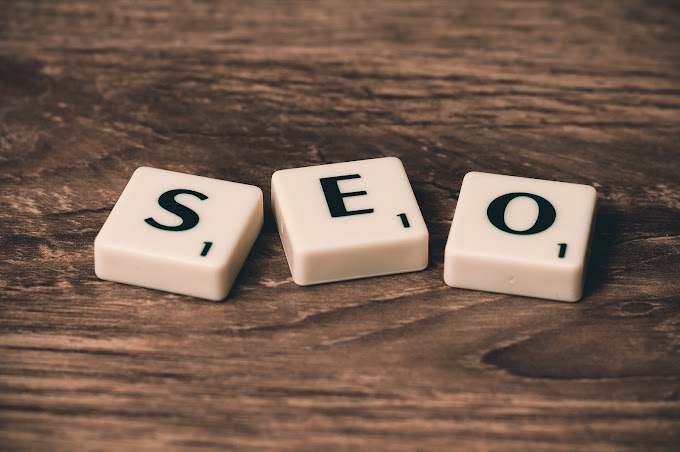The Secrets of Off-Page and On-Page SEO: A Comprehensive Guide
Understanding the nuances of search engine optimization
(SEO) is essential in the current digital world, where online presence can make
or destroy a firm. Off-page and on-page optimization are two key tenets of SEO.
We'll go in-depth on these topics in this thorough tutorial, illuminating the
methods and tactics that can improve the position of your website on search
engine results pages (SERPs).
Table of Contents
Introduction
What is SEO?
The importance of SEO
On-page vs. off-page SEO
On-Page SEO: Mastering the Art
Title tags and meta descriptions
Headings and subheadings
Quality content creation
Keyword optimization
Internal linking
Mobile-friendliness
User experience and site speed
Structured data markup
URL optimization
Off-Page SEO: Building Your Digital Reputation
What is off-page SEO?
Backlink building
Social media signals
Online reputation management
Guest posting
Influencer outreach
Content marketing
The Synergy of On-Page and Off-Page SEO
How on-page and off-page SEO work together
Case study: Achieving SEO success
Measuring Your SEO Success
Key performance indicators (KPIs)
Tools for tracking SEO progress
Analyzing and adapting your strategy
Conclusion
Recap of on-page and off-page SEO
The ongoing journey of SEO mastery
Now, let's embark on this journey to demystify the world of
SEO.
Introduction
What is SEO?
The process of improving a website's exposure on search
engines like Google, Bing, and Yahoo is known as SEO or search engine
optimization. It is a collection of tactics and methods intended to raise a
website's placement on search engine results pages (SERPs). Increasing organic
(non-paid) traffic to a website is SEO's main objective.
The Importance of SEO
SEO, or search engine optimization, is the practice of
increasing a website's visibility on search engines like Google, Bing, and
Yahoo. It is a group of strategies and techniques aimed at improving a
website's ranking on search engine results pages (SERPs). The primary goal of
SEO is to increase organic (non-paid) traffic to a website.
On-Page vs. Off-Page SEO
Before diving into the details of on-page and off-page SEO,
it's essential to understand the fundamental difference between the two.
On-Page SEO: Mastering the Art
On-page SEO refers to the optimization efforts you make
directly on your website's pages to improve its search engine ranking. Let's
explore some key elements of on-page SEO:
Title Tags and Meta Descriptions
HTML features like title tags and meta descriptions offer a
succinct overview of a webpage's content. The titles and descriptions you
provide for your links in search results might persuade consumers to click on
them.
Headings and Subheadings
Your text is organized by headings and subheadings (H1, H2,
H3, etc.), which makes it easier to read and scan. These titles help search
engines determine the order and relevancy of your material.
Quality Content Creation
Headings and subheadings (H1, H2, H3, etc.) help arrange
your material and make it simpler to read and scan. Search engines use these
titles to establish the hierarchy and relevance of your content.
Keyword Optimization
Strategically incorporating pertinent keywords into your
content's headers, paragraphs, and meta tags is known as keyword optimization.
Avoid keyword stuffing, though, as it might result in sanctions.
Internal Linking
Your website's internal connections connect various pages,
enhancing navigation and dispersing PageRank. They aid with the discovery and
indexing of your material by search engines.
Mobile-Friendliness
A mobile-responsive website is essential for SEO given the
rising use of mobile devices. Mobile-friendliness is a ranking criterion
according to Google.
User Experience and Site Speed
Fast loading speeds and a good user experience can help your
SEO. Low ranks and high bounce rates are frequent effects of slow websites.
Structured Data Markup
Structured data markup, commonly referred to as schema
markup, gives search engines more information about your content. Rich snippets
and other additions can improve search results.
URL Optimization
Clean, detailed, and user-friendly URLs make it easier for
visitors and search engines to grasp what is on a website.
Off-Page SEO: Building Your Digital Reputation
Off-page SEO involves activities that take place outside
your website but have a significant impact on your online presence. Here are
some crucial off-page SEO techniques:
What is Off-Page SEO?
All the steps you do to raise your website's reputation,
authority, and relevance online are collectively referred to as off-page SEO.
It's about leaving a significant digital legacy that extends beyond your
website.
Backlink Building
Links pointing to your website from other sites are referred
to as backlinks or inbound links. Search engines get signals from high-quality,
pertinent backlinks coming from reliable sources that your content is reliable
and valuable.
Social Media Signals
Shares, likes, and comments on social media posts might have
an indirect impact on your SEO. Engaging with your audience on social media may
boost brand recognition and enhance website traffic.
Online Reputation Management
It's crucial to keep an eye on and manage your internet
reputation. Negative reviews and comments might have less of an influence on
your brand's reputation if you respond to them right away.
Guest Posting
Writing and distributing material on other websites in your
area is known as guest blogging. It's a great technique to increase backlinks
and establish your authority in your industry.
Influencer Outreach
Working with influencers may increase the visibility of your
business, as well as provide beneficial backlinks and social signals.
Content Marketing
Value-added content creation and promotion, such as blog
entries, infographics, and videos, can draw natural backlinks and social media
shares.
The Synergy of On-Page and Off-Page SEO
Despite their differences, on-page and off-page SEO
complement one another to increase your website's exposure and ranking. Let's
see how these two factors interact:
How On-Page and Off-Page SEO Work Together
By enhancing the structure and content of your website,
on-page SEO establishes the base. Then, off-page SEO reinforces this base by
developing your website's authority and trust across the online world.
Case Study: Achieving SEO Success
Let's look at a real-world case study of a company that used
a comprehensive strategy to generate outstanding results to demonstrate the
value of integrating on-page and off-page SEO.
Measuring Your SEO Success
You must monitor key performance indicators (KPIs) and make
use of a variety of tools in order to evaluate the success of your SEO efforts:
Key Performance Indicators (KPIs)
Your SEO progress may be seen by KPIs like organic traffic,
conversion rate, bounce rate, and keyword ranking positions.
Tools for Tracking SEO Progress
Several tools are available to help you measure and analyze
your SEO success. Here are some popular ones:
Google Analytics:
This free tool provides valuable insights into your website's traffic, user behavior, and conversion rates. It helps you track the effectiveness of your SEO strategies.
Google Search Console:
Google's own tool allows you to monitor your website's presence in Google's search results. It provides data on search queries, indexing issues, and more.
SEMrush:
SEMrush is a comprehensive SEO suite that offers
keyword research, competitive analysis, and site auditing. It's a valuable
resource for understanding your SEO performance in comparison to competitors.
Moz Pro:
Moz Pro provides a suite of SEO tools, including
site audits, keyword research, and backlink analysis. It's known for its
accuracy in tracking keyword rankings.
Ahrefs:
Ahrefs is a powerful tool for backlink analysis and
competitive research. It helps you identify opportunities to improve your
off-page SEO.
Yoast SEO:
If you're running a WordPress website, the Yoast
SEO plugin can assist with on-page optimization. It offers real-time content
analysis and helps you create SEO-friendly content.
Buzzsumo:
Buzzsumo is excellent for content research. It
helps you identify trending topics and discover influential content in your
niche.
Conclusion
Understanding both on-page and off-page optimization is
essential for establishing online success in the dynamic world of SEO. By
ensuring that your website is user-friendly, educational, and technically
solid, on-page SEO creates the groundwork. Off-page SEO enhances your online
presence and establishes your website as a reliable resource for information
about your industry.
Keep in mind that SEO is a lifelong endeavor. To stay ahead
in the digital environment, ongoing monitoring, adaptability, and invention are
required. You may increase the visibility of your website, get organic
visitors, and eventually accomplish your online objectives by combining the
best practices of on-page and off-page SEO and using the appropriate tools.
Now that you've gained insights into the world of SEO, it's
time to take action and start optimizing your website for success.
FAQs (Frequently Asked Questions)
1. How long does it take to see results from SEO?
The length of time it takes to get results from SEO might
vary based on the quality of your SEO efforts, the level of competition in your
industry, and the difficulty of your target keywords. In general, it may take
many months before rankings and traffic start to significantly increase.
2. Are there any shortcuts to SEO success?
No, there aren't any real shortcuts to successful long-term
SEO. Avoid using black-hat techniques since they may result in search engine
penalties. Concentrate on producing top-notch content, developing trustworthy
backlinks, and delivering a top-notch user experience.
3. Is social media important for SEO?
Although social media activity doesn't directly affect
search engine results, it may nonetheless have an indirect impact on SEO by
increasing website traffic and brand awareness. Engaging with your audience on
social media may improve your online presence as a whole.
4. How can I recover from a Google penalty?
Find the problems that caused the Google penalty and fix
them to recover. Improved content quality, disavowing low-quality backlinks,
and making sure your website conforms with Google's criteria may all be
necessary to achieve this. Once you've made the required adjustments, ask
Google to reconsider your request.
5. What's the future of SEO?
The sophistication of search engines will cause SEO to
advance further. User experience, voice search, and smartphone optimization
will all become more important. Success with SEO will depend on keeping up with
industry trends and adjusting to algorithm changes.
Keep in mind that there is no one-size-fits-all approach to
SEO. It demands a customized strategy based on the specific objectives and
target market of your website. If you're new to SEO, think about asking
knowledgeable experts for guidance as you negotiate the challenges of search
engine optimization.







